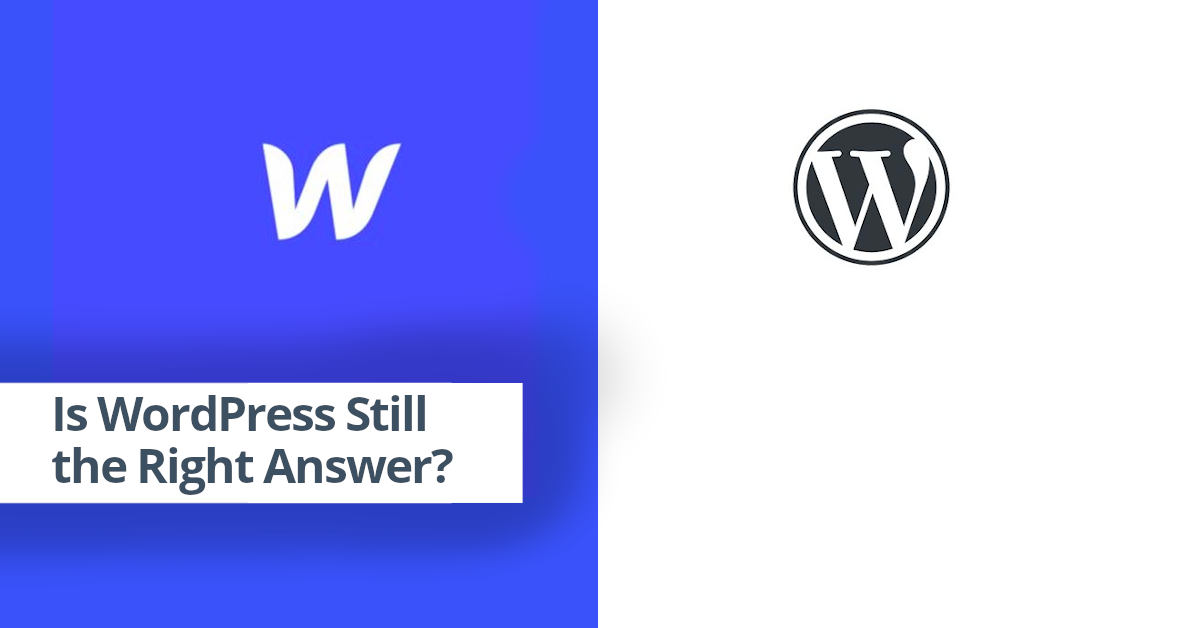Since the day I first discovered WordPress (also the day I set up my first site), it’s been the right answer to so many questions my clients ask me:
- How can my business become more visible online? WordPress.
- How do I organize and manage my content marketing efforts? WordPress.
- How do I help people find out about my new ________ (product, service, idea, etc.)? WordPress.
- What tool should I use to start a podcast? WordPress.
Back then, my advice wasn’t even to build your website with WordPress—it didn’t yet have custom post types and some other essentials that you really needed to make it work as a full-blown content management system.
So we were just adding it on to existing websites or launching separate domain names so that businesses could leverage the unbelievable benefits of consistently publishing quality content with WordPress.
And leverage they did. The business owners that that adopted WordPress after hearing me proclaim its virtues from conference stages, on webinars, and in private training and consulting engagements have produced millions of dollars in new revenue for their businesses.
WordPress Clearly Was the Right Answer
Today, WordPress powers more than 34.5% of all websites. It is truly a testament to the power of the ideas behind open source software, including Richard Stallman’s famous 4 freedoms, perhaps second only to GNU/Linux itself.
Perhaps even more importantly than the sheer number of websites that use WordPress, the community that has grown up around the project—from local meetups and WordCamps to the many businesses and organizations whose very existence orbits around WordPress—is staggeringly large and growing every day.
And I love it.
Some of my favorite people on the planet are ones that I met because of WordPress.
But Now We Live in a Different World
the times they are a-changin’
Bob Dylan
The simple truth is that WordPress is more costly to manage than ever before.
Its complexity has grown so much that a typical business owner in one of my training programs can’t be expected to handle all the tasks that go along with launching, maintaining, and operating a WordPress site today—at least not like they did when I first incorporated it into our digital marketing training back in 2008.
On top of that, in 2019 we have a huge proliferation of new stuff. Who could have imagined that we’d be talking about static site generators, fully managed platforms, and any number of other ways to get websites built and digital marketing done?
And so anyone who has a vested interest in helping businesses succeed online can no longer just assume that WordPress is still the right answer.
WordPress vs. Webflow
In the spirit of grappling with that very question, the Webflow vs. WordPress event was created. Tomorrow evening, I’ll go head-to-head with Nelson Abalos Jr. (@thepixelgeek) from Webflow—one of the many new options that we WordPress advocates may be ignoring to our own peril.
Webflow has captured the imagination of Raymmar Tirado (@RayTirado), a fellow WordPress Meetup organizer and tech enthusiast friend of mine. He’s been so thrilled with what he’s been able to do that he’s been trying to convince me to make the switch.
Which platform is the right one to use? Well certainly the world is too big a place for there to be one right answer for everyone. But we’ll be having a spirited conversation about why anyone would even consider using something other than WordPress to build a site and get results from the web.
Which platform will win?
I guess you’ll have to join the live stream and help decide. We’ll get started at 6pm EDT on September 12th. Oh and be sure to submit your questions ahead of time. Make ’em tough ones. If we’re going to debate this, there’s no reason to not get serious about it.
Oh and if you’re in Sarasota, there are a few tickets left. They’re free, so grab one and come join us in person!

